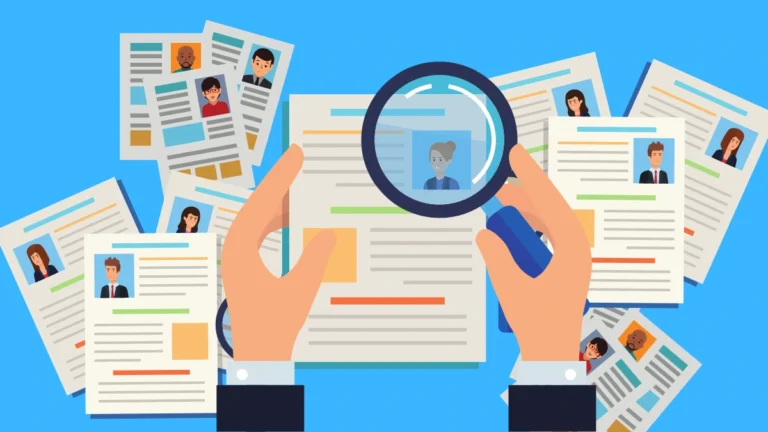When it comes to what not to do during a job interview, there are several key mistakes to avoid. This article will guide you through the common pitfalls that can hurt your chances of landing the job. You need to understand how body language, dress code, and first impressions matter. It’s important to prepare strong answers and research the company ahead of time. Stay positive, avoid negativity, and know the red flags that can arise. By knowing what to avoid, you can make a better impression and stand out to your potential employer.
Common Job Interview Mistakes You Should Avoid
Poor Body Language Can Hurt Your Chances
When you walk into an interview, your body language speaks volumes before you even say a word. If you slouch or avoid eye contact, it can signal that you’re not interested or confident. Instead, stand tall, make eye contact, and offer a firm handshake. These small gestures can make a big difference. Remember, your posture and expressions can either open doors or close them.
Inappropriate Dress Code Signals Lack of Preparation
Dressing for an interview is like putting on your best armor before a battle. If you show up in casual clothes, it might suggest you didn’t take the interview seriously. Always dress appropriately for the job you want. Here’s a quick guide:
| Job Type | Recommended Attire |
|---|---|
| Corporate | Suit and tie |
| Creative | Smart casual, stylish |
| Tech | Business casual |
| Retail | Neat, clean, professional |
First Impressions Matter in Interviews
You only get one shot at a first impression, so make it count! Walking in with a smile and a positive attitude can set the tone for the entire interview. Think of it as your opening act; if you nail it, the rest will follow smoothly.
What Not to Do During a Job Interview: Weak Answers
Avoid Rambling or Going Off-Topic
When you’re in an interview, staying focused is key. If you find yourself rambling, it can make you look unprepared. Stick to the question at hand. For example, if the interviewer asks about your experience, share a clear and concise story related to that experience.
Tip: Use the STAR method—Situation, Task, Action, Result—to keep your answers on track. This helps you provide clear examples without straying off-topic.
Don’t Give Vague Responses to Questions
Vague answers can leave interviewers scratching their heads. Instead of saying, I’m a team player, give a specific example. For instance, mention a time when you worked with a team to complete a project successfully. This paints a clearer picture of your skills and abilities.
| Weak Answer | Strong Answer |
|---|---|
| I helped my team. | I collaborated with my team to launch a new product, resulting in a 20% increase in sales. |
Practice Strong Answers Before the Interview
Preparation is everything. Before your interview, practice strong answers to common questions. This can help you feel more confident and articulate. You might even want to record yourself to see how you come across.
Example Questions to Practice:
- What are your strengths?
- Why do you want to work here?
- Describe a challenge you faced at work.
The Importance of Researching the Company
Lack of Research Can Show Disinterest
When you step into an interview, first impressions are everything. If you walk in without knowing anything about the company, it can come off as a sign of disinterest. Hiring managers want to see that you care. A lack of research can make you look unprepared, and that’s not the impression you want to leave.
Know the Company’s Values and Mission
Understanding a company’s values and mission is key. This knowledge helps you align your answers with what the company stands for. For example, if a company emphasizes teamwork, you might want to share a story about how you successfully collaborated on a project. Here’s a quick table to help you break down what to look for:
| Aspect | What to Look For |
|---|---|
| Company Values | Integrity, Innovation, Teamwork |
| Mission Statement | What is their primary goal? |
| Recent News | Any recent achievements or challenges? |
Prepare Questions About the Company to Ask
Asking questions shows that you’re engaged and interested. Prepare a few questions to ask at the end of your interview. Here are some examples:
- What does success look like in this role?
- How does the company support employee growth?
- Can you tell me more about the team I would be working with?
By preparing thoughtful questions, you not only gain valuable insights but also demonstrate your enthusiasm for the role.
Negative Attitudes in Interviews: A Big No-No
Avoid Speaking Badly About Past Employers
When you’re in an interview, keep your mouth zipped about past employers. Badmouthing them can backfire. It shows that you might not be a team player. Instead, focus on what you learned from those experiences. For example, if a past job was tough, say, “I learned how to handle pressure.” This way, you turn a negative into a positive.
Stay Positive Even When Discussing Challenges
Everyone faces challenges at work. But how you talk about them matters. If you talk about a tough project, frame it positively. Say things like, “That project taught me how to think on my feet.” This shows you can handle tough situations with a good attitude.
Your Attitude Can Influence the Interviewer’s Decision
Remember, your attitude can sway the interviewer’s choice. If you come across as negative, they might think you’re not the right fit. On the other hand, a positive outlook can open doors.
| Positive Attitude | Negative Attitude |
|---|---|
| “I enjoyed the challenge.” | “That was a nightmare.” |
| “I learned a lot.” | “It was a waste of time.” |
In short, keep your talk upbeat. Show that you can handle challenges with grace. This will make you stand out in a crowd of candidates.
Recognizing Job Interview Red Flags
Be Aware of Your Own Red Flags
When you’re preparing for a job interview, self-awareness is key. Think about how you present yourself. Are you showing signs of nervousness? Fidgeting or avoiding eye contact can be red flags. It’s important to project confidence. Practice your answers and rehearse your body language.
Ask yourself:
- Am I well-prepared?
- Do I know enough about the company?
- Am I enthusiastic about the role?
If you find yourself answering “no” to these questions, it might be time to revisit your preparation.
Watch for Red Flags from the Interviewer
During the interview, keep an eye out for signs that the company may not be the right fit for you. Red flags from the interviewer can include:
- Negative comments about previous employees
- Lack of clear answers to your questions
- An unprofessional demeanor
These signs can indicate a toxic work environment. For example, if the interviewer speaks poorly about former staff, think twice. It might reflect their management style.
Here’s a quick table to summarize:
| Red Flag | What It Means |
|---|---|
| Negative comments about others | Poor company culture |
| Vague answers to your questions | Lack of transparency |
| Unprofessional behavior | Disrespect for employees |
Trust Your Instincts During the Interview Process
Your gut feeling plays a big role in job interviews. If something feels off, don’t ignore it. Trusting your instincts can save you from a bad job fit.
For example, if the interviewer seems disinterested or distracted, that could reflect how they value employees. If you feel uncomfortable during the conversation, it’s okay to take a step back and reassess.
Interview Don’ts: How to Make a Good Impression
Avoid Interrupting the Interviewer
When you’re in an interview, listening is just as important as speaking. If you jump in while the interviewer is talking, it can come off as rude. Instead, practice patience. Wait for them to finish their thoughts before you respond. Think of it this way: it’s like a dance. You wouldn’t step on your partner’s toes, right?
Here are some tips to help you avoid interrupting:
- Take notes: Jot down key points while the interviewer speaks. This way, you won’t forget your thoughts.
- Pause: After they finish, take a brief moment to gather your thoughts before responding. This shows you’re considering their words.
- Ask clarifying questions: If you’re unsure about something, ask them to elaborate instead of jumping in with your answer.
Don’t Forget to Follow Up After the Interview
Following up is your chance to shine even brighter after the interview. It shows you’re truly interested in the position. Remember, it’s not just about what you say during the interview; it’s also about what you do afterward.
A Thank-You Note Can Leave a Lasting Impression
Sending a thank-you note can be a game-changer. It can set you apart from other candidates. Here’s how to craft a note that stands out:
| Element | Description |
|---|---|
| Greeting | Start with a friendly greeting, using the interviewer’s name. |
| Thank You | Express gratitude for their time and the opportunity to interview. |
| Specifics | Mention something specific from the interview that resonated with you. |
| Closing | End with a positive note and express your eagerness to hear back. |
A simple note can make a big difference. It shows that you’re thoughtful and professional. So, don’t skip this step!


